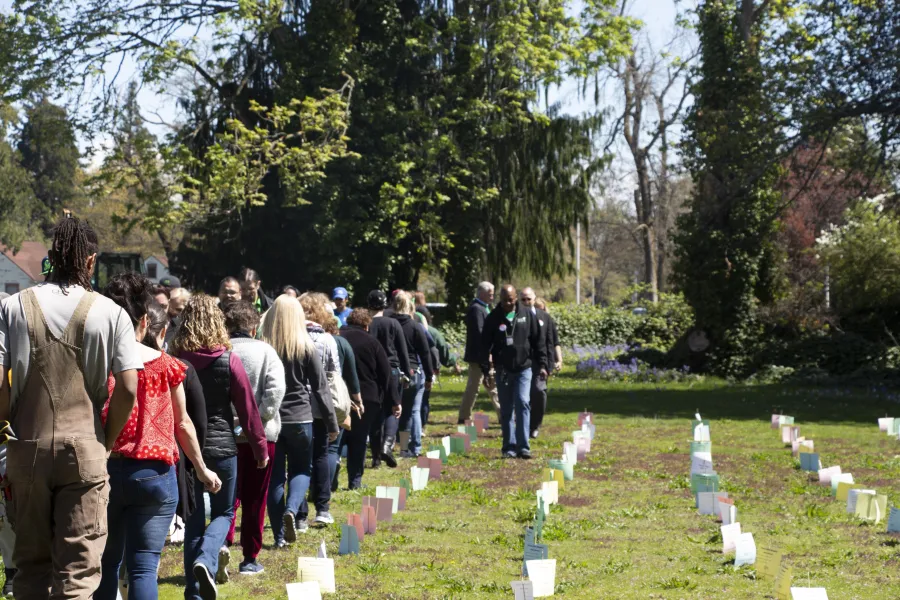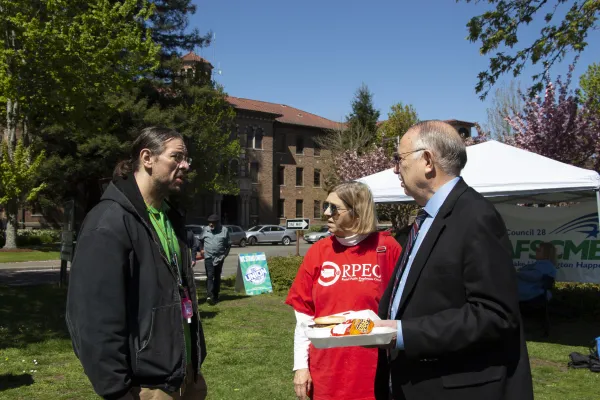Despite Violence, Workers Remain Dedicated

LAKEWOOD, Wash. — Monday marked the annual Workers’ Memorial at Western State Hospital (WSH). Workers and community came together in the spring sun to share stories, grieve, and commit to a safer future.
A field of flags represented the 1,090 reported assaults in 2018.
Joined by Representative Mari Leavitt and Senator Steve Conway, memorial attendees celebrated the dedication and service of the staff of WSH.
“I like helping people who have mental illness, helping them to get ready to be out in the community and seeing that smile on their face,” said Stephanie Nava, a mental health technician at WSH for three years. She and her coworkers remain committed to the mission of rehabilitating community members despite severe and regular workplace violence.
Mark Camacho, a shop steward, licensed counselor and veteran of two tours in Iraq, echoed Nava’s passion for the patients they support.
“I like serving people. I was in the military for almost 13 years. When I came here, I wanted to help people that were having difficulties with PTSD,” he said. “I’m hoping that people will realize that [the staff] are people who sacrifice their lives to be here, not only to make a living but because they care about the patients.”
Mike Yestramski has been a social worker at WSH for six years.
“A lot of my patients are people that society has given up on,” said Yestramski. “I like to prove people wrong. With the right support and treatment, patients can get back having fulfilling lives.”
But with a soberingly high rate of assaults, WSH staff face the possibility of violence on every shift.
“We have people who are very sick, and people who come in through the criminal justice system who are prone to violence. We’re so short staffed that we can’t afford to have people leave the ward to get updated training,” said Yestramski.
Short staffing compromises the quality of care patients receive and directly influences the high rate of assaults.
Mandatory overtime has high costs, too. Siobhan, who preferred to give just her first name, cited double shifts as a main culprit in burnout.
“It’s frustrating to see the staff burn out. In the ward I work at, people are like a family. We have a lot of potlucks. But when it comes to the shifts, you can see there’s a shortage.”
Siobhan struggles with posttraumatic stress disorder, or PTSD, resulting from an assault at work.
“I enjoy working with the clients and with the staff, but at the same time, I struggle every day.”
Change is slow, said many workers, but standing together is key.
Ashaniece Anderson has worked at WSH for just eight months.
“I really wish the number of assaults would decrease. Until then, we have to stand together and keep pushing to get more security and more training.”

